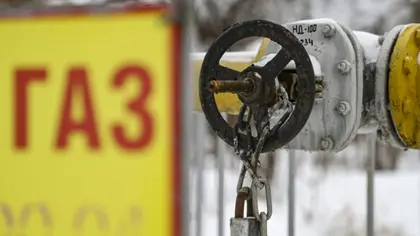Despite a significant reduction in reliance on Russian gas – from 40% to 12% – some EU member states wish to continue receiving gas from Russia, jeopardizing collective energy security and political autonomy.
Recent calls from Slovakia and Austria to extend the transit highlight this dilemma and clash with the EU’s REPowerEU Plan to end reliance on Russian fossil fuels by 2027.
JOIN US ON TELEGRAM
Follow our coverage of the war on the @Kyivpost_official.
The continued reliance on Russian gas not only undermines the solidarity and unity of the EU but also strengthens Russia’s war chest amidst its aggression in Ukraine.
This underscores the urgency for a clear and unified EU position to terminate all Russian gas imports (pipeline and LNG) and forge a secure, independent energy future for the CEE region.
In 2023, Russia’s pipeline gas sales to Europe were estimated at 25 bcm (billion cubic meters), of which 14.56 bcm transited through Ukraine. Approximately 12 bcm was dispatched to the EU countries Slovakia, Austria, and Italy, bringing approximately $6 billion to Russia.
Austria is the primary importer of Russian gas, accounting for nearly half of its total imports over the last 12 months. Italy also received a significant volume of Russian gas (estimated at between 3 and 4 bcm) via pipeline through Ukraine. Slovakia, importing close to 2 bcm, obtained about one-third of its imports from Russia via Ukraine.
It is important to note that for these countries, gas imports from the Russian Federation are no longer dictated by technical restrictions of the gas infrastructure or lack of gas in the EU gas market, but rather by purely economic and political considerations.

Moscow Prime Suspect for Sabotage Aimed at Disrupting Olympic Games
Russia desperately wants to maintain its presence in the lucrative European gas market, seeking to continue its revenue stream and maintain its political influence over European countries. Pro-Russian politicians in Europe, along with Russian politicians, have begun lobbying for the continuation of the transit.
On 26 March Russia escalated by attacking and damaging for the first time the gas transit and storage infrastructure in Western Ukraine, signaling to the EU that without Russian gas transiting Ukraine, the EU will not have gas stored in Ukraine.
For Ukraine, the continuation of transit after 2024 is not critical from either economic or technological viewpoints. In 2023, Ukraine’s transit fees from Russia, amounting to approximately $800 million, accounted for a modest 0.46% of its GDP.
The transit also poses a very difficult political question for the Ukrainian government, as the population does not support such cooperation with Russia amidst the ongoing conflict. Thus, Ukraine’s stance is to abstain from direct negotiations with the Russian Federation regarding the extension of the transit agreement post-2024.
However, this ambiguous statement leaves room for varied interpretations. Some European leaders perceive it as an opportunity to continue to receive gas from Russia via Ukraine. With the contract expiration date imminent, officials from Slovakia and Austria have voiced support for continuing the transit.
Responding to assertions that the gas transit should cease in 2025, the Austrian Energy regulator stated: “E-Control maintains that transit can persist as long as the pipelines remain intact.”
The CEO of the Austrian energy utility OMV Alfred Stern declared: “As long as Gazprom supplies… we will continue to take these quantities from Gazprom.”
During his recent visit to Ukraine, Slovakia’s newly elected Prime Minister Robert Fico remarked: “I will be very glad if a solution is found. Perhaps, without the direct participation of Ukrainian firms… I think they [the Ukrainians] would make a huge mistake if they do not create conditions for the transit of Russian gas to Europe because this is a matter that concerns not only Slovakia but also Italy and Austria, which support this idea.”
Such statements by politicians in support of the continuation of the transit completely contradict the vision of the NATO leadership, which says the alliance should be prepared for the start of a potential military conflict with Russia in 3-5 years.
Regrettably, the European Commission has not been able to help achieve a consensus on implementing sanctions on Russian LNG and pipeline gas. It has instead given each EU member state the opportunity to independently decide on the imposition of sanctions against Russian gas.
Obviously, Ukraine and Slovakia should not engage in conflict over extending the transit contract beyond 2024.
Instead, these countries should collaborate to pioneer innovative business models. Imagine the potential of co-creating a regional gas hub, uniting Europe’s largest gas storage facilities in Ukraine with the western gas hubs through Slovakia.
Envision the establishment of a robust South-North gas corridor, seamlessly connecting LNG terminals in Greece and Turkey with the Central and Western European gas markets via the Trans-Balkan pipeline.
The present moment is optimal for the EU to prohibit the import of Russian gas via Ukraine and LNG, demonstrating solidarity and a commitment to escape from reliance on Russian energy resources and reducing export revenues of the Russian state.
Sergiy Makogon is Senior Energy Expert, former CEO of Gas TSO of Ukraine (2019-2022)
You can also highlight the text and press Ctrl + Enter







